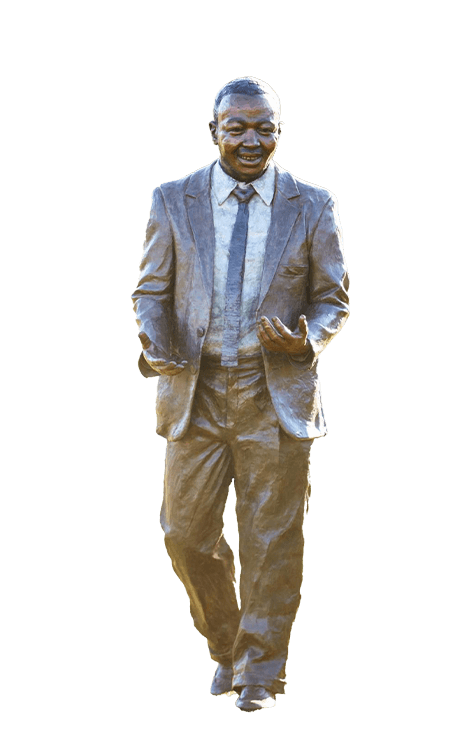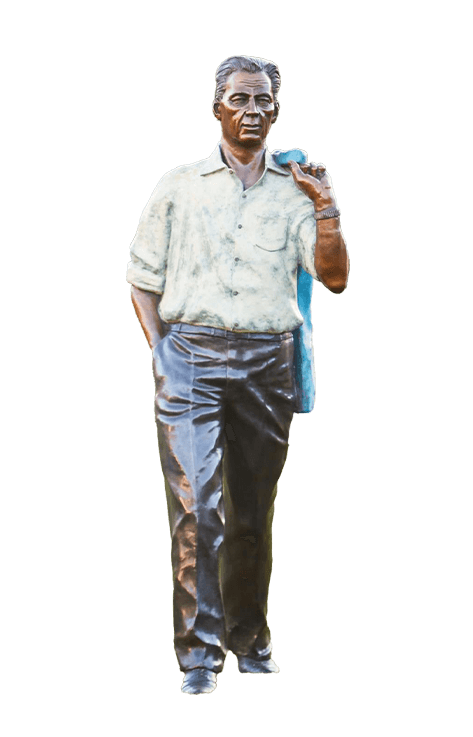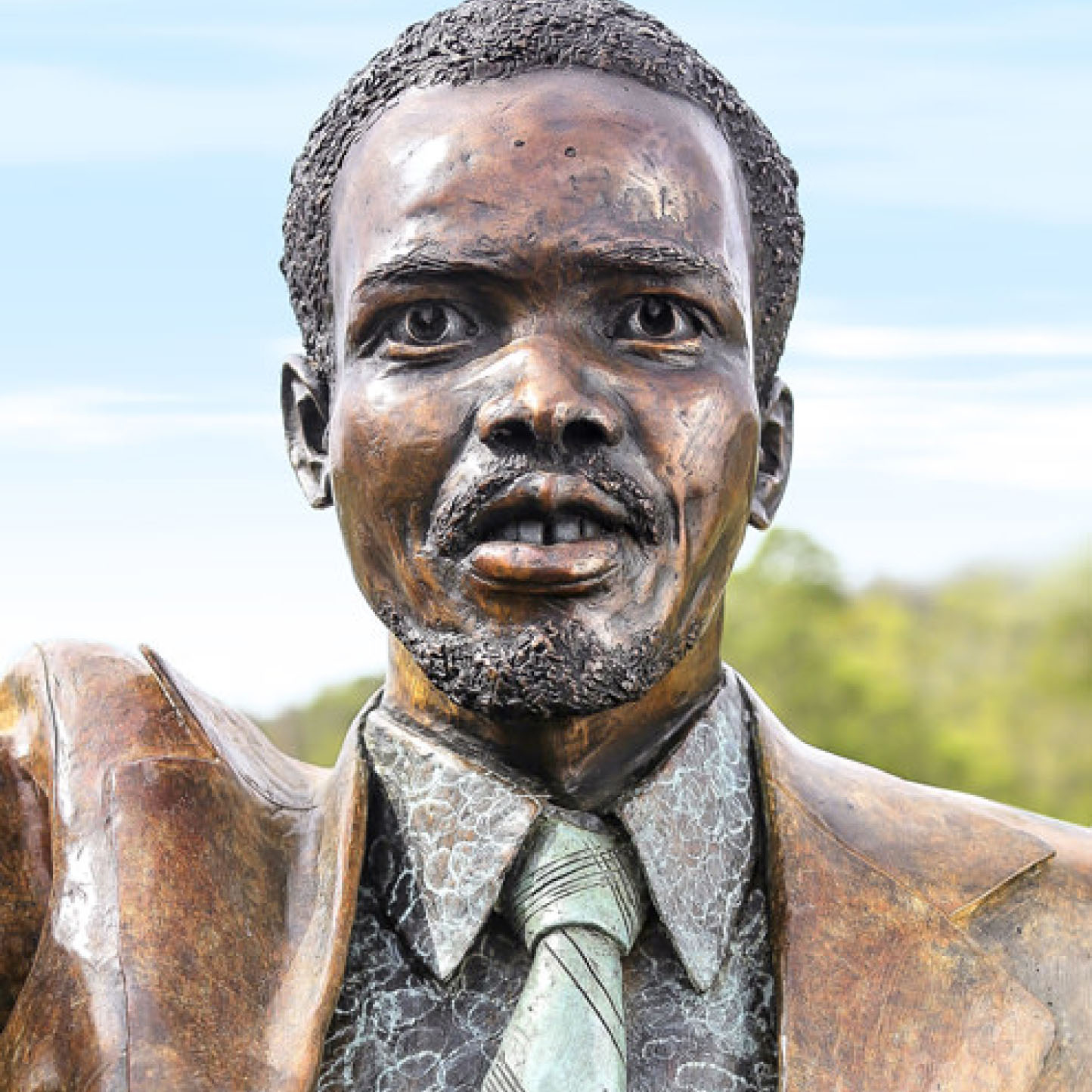
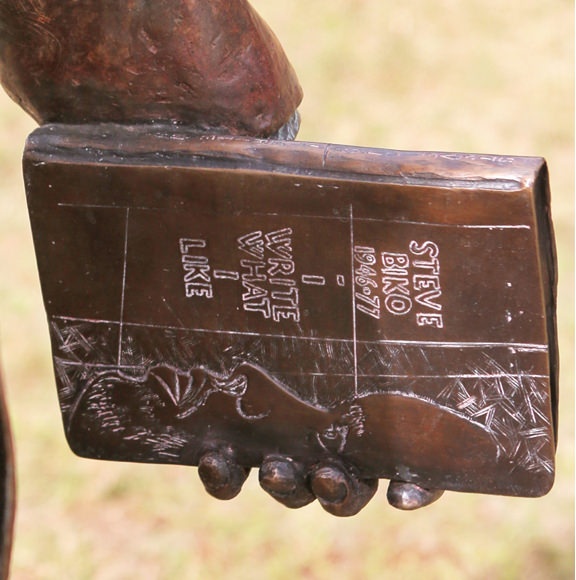
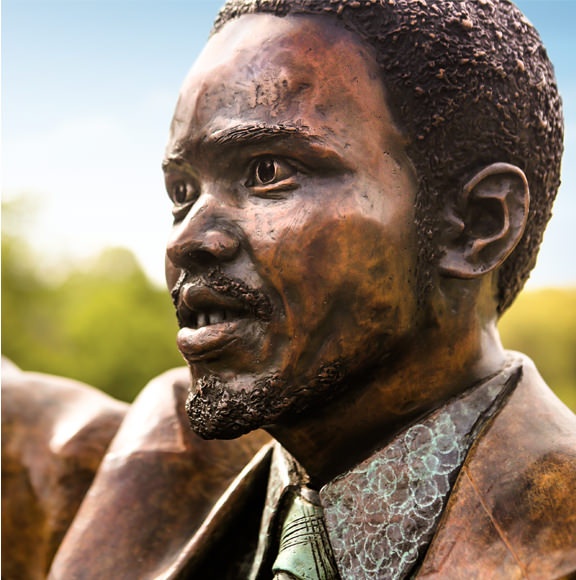
"The most potent weapon in the hand of the oppressor is the mind of the oppressed."
– Steve Biko, I Write What I like, Selected Writings, 1978
Steve Biko
1946 – 1977
Co-Founder and President of the South African Students Organisation, Co-Founder of the Black People's Convention, leader of the Black Consciousness Movement
Born in King Williams Town in the Eastern Cape, Biko enrolled at the University of Natal's medical school, Wentworth, after matriculating in Durban in 1965.
As his college was affiliated to the National Union of South African Students (NUSAS), he became active in it but resigned in 1969 with a substantial body of black students who felt that NUSAS did not represent the needs of black students. During the same year he was elected president of the black South African Students Organisation (SASO), co-founded by him the previous year.
Thus was the Black Consciousness Movement (BCM) born.
It urged the emancipation of black people by their own efforts which required discarding the inferiority complex imposed by apartheid and white racism. Black Consciousness was ideologically inspired by the African-American freedom movement and sought to cultivate self-reliance and unity amongst all the oppressed people of South Africa. It insisted on black leadership and initiative in the struggle against apartheid and launched a number of political and community organisations.
The Black People's Convention, aimed at uniting various BCM organisations under one umbrella, elected Biko as its first president in 1977.
Following his expulsion from medical school in 1972, Biko went to work full-time for the Black Community Programme, one of the BCM organisations focused on social upliftment, general literacy and black economic self-reliance. A year later he was banned and confined to King Williams Town.
For his continued political activities Biko was detained and interrogated four times between 1975 and 1977. During his last detention he was tortured at the headquarters of the Security Police in Port Elizabeth and then transported naked, without medical escort, for 12 hours in the back of a police van to Pretoria's central prison. He died the following day from a brain haemorrhage, aged 30.
Biko was the leading voice of Black Consciousness in South Africa in the 1960s and 70s. His brutal murder in police custody made him a worldwide martyr.
His death highlighted the brutality of the South African security system and led directly to the decision by Western governments to support the United Nations Security Council's ban on arms sales to apartheid South Africa.
Biko was a speaker whose perception and energy urged people to take their destiny into their own hands. He discouraged the cult of personality and tried to play a backroom role but nonetheless became the most recognizable icon of the Black Consciousness Movement in South Africa after his death in 1977.
